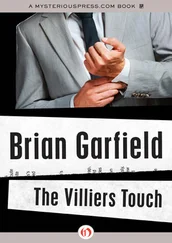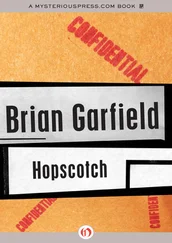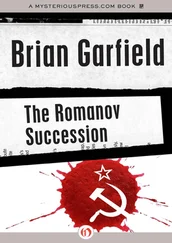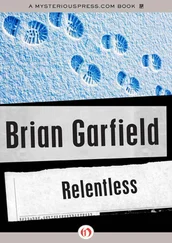Brian Garfield - Kolchak's gold
Здесь есть возможность читать онлайн «Brian Garfield - Kolchak's gold» весь текст электронной книги совершенно бесплатно (целиком полную версию без сокращений). В некоторых случаях можно слушать аудио, скачать через торрент в формате fb2 и присутствует краткое содержание. Жанр: Политический детектив, на английском языке. Описание произведения, (предисловие) а так же отзывы посетителей доступны на портале библиотеки ЛибКат.
- Название:Kolchak's gold
- Автор:
- Жанр:
- Год:неизвестен
- ISBN:нет данных
- Рейтинг книги:3 / 5. Голосов: 1
-
Избранное:Добавить в избранное
- Отзывы:
-
Ваша оценка:
- 60
- 1
- 2
- 3
- 4
- 5
Kolchak's gold: краткое содержание, описание и аннотация
Предлагаем к чтению аннотацию, описание, краткое содержание или предисловие (зависит от того, что написал сам автор книги «Kolchak's gold»). Если вы не нашли необходимую информацию о книге — напишите в комментариях, мы постараемся отыскать её.
Kolchak's gold — читать онлайн бесплатно полную книгу (весь текст) целиком
Ниже представлен текст книги, разбитый по страницам. Система сохранения места последней прочитанной страницы, позволяет с удобством читать онлайн бесплатно книгу «Kolchak's gold», без необходимости каждый раз заново искать на чём Вы остановились. Поставьте закладку, и сможете в любой момент перейти на страницу, на которой закончили чтение.
Интервал:
Закладка:
“Maybe I look harmless enough.”
“Anyway you’re a good listener. Do you live in Washington?”
“No. I have an old farmhouse on the Delaware River in New Jersey-more or less across the river from New Hope, if you know the area.”
“Bucks County. Someone took me to the playhouse there once. It’s lovely.”
I waited for a burst of party laughter to subside. “Have you lived in Czechoslovakia?” It sounded lame.
“No. I have an annoying memory for facts, that’s all. Particularly facts that show the Soviets in a bad light.”
“That’s candid enough.”
“I do hate them. But I don’t limit my being to that alone. I’m afraid I let MacIver think I did, and I’d prefer to have him go on believing that.”
“My lips are sealed.”
“Do you know him well?”
“We roomed together in university for a few months. But I didn’t remember him when he introduced himself to me tonight.”
She changed the subject abruptly. “Are you writing another book on the Civil War in Russia?”
“On Kolchak. He was the Czarist admiral who-”
“I know who he was.” She didn’t snap; it was a kindly rebuff: Don’t waste time explaining things that don’t need explaining. “Do you think you can add much to what’s already been written about him?”
“We have quite a bit now that wasn’t available before. I’ve gone through Deniken’s papers, for example-the family only turned them loose a few years ago.”
“Ah, but he was only another general. You really should talk to the survivors who really knew.”
“They’re a bit hard to find. It was more than fifty years ago.”
“I know a man in Israel,” she said.
2
Her name, it turned out, was Nicole Eisen, nee Desrosiers; it was her father, not her mother, who had been French. (Her mother had been a Ukrainian Jew.) She did in fact have a seven-year-old daughter, a severely retarded child, in a Swiss institution; but there was no husband. Ben Eisen had been dead for nearly two years. When I observed that MacIver was a rotten spy she agreed with amusement; MacIver had accepted everything she’d told him. It left me wondering how much of it I should accept: did she tailor her fictions to fit each audience?
She was doing some sort of work for a refugee group, an Israeli-sponsored mission in Washington which lobbied for the relaxation of Soviet restrictions on Jewish emigration. She was a bit vague when it came to what precisely she did there, or how long she expected to stay.
At five the next day I picked her up at her organization’s rented office down C street from the State Department; I drove her home so that she could change for dinner and give me the name and address of the old man in Tel Aviv who she said had survived the White Russians’ Siberian disaster in 1920.
She had a small flat a few blocks from the water in Georgetown. In the next weeks I came to know it well.
We had dinner that night and the next; we were at ease with each other from the very beginning. I liked talking with Nikki; she was a stimulant: when I talked with her my voice became quicker, my perceptions brighter, my mind bright and analytical.
Her face was animated, full of vitalities and subtleties that inhabited the swift constant changes of responsive expressions: wisdom, sophistication, alert shrewdness, avaricious impatience. To a painter’s eye I suppose she would not have been beautiful but I found her extravagantly bewitching. Her rayonnement was irresistible. Her enormous amused agate eyes; her soft and always slightly breathless voice; her good-humored pride in her quick little body-she was willing to give frankly when it pleased her, when the touch of my hand pleased her. She was the kind of girl who enjoyed being with a man but did not define herself only in terms of men; you had to meet her as an equal. That was one reason she had turned MacIver off. He was too much of a scorekeeping womanizer.
She knew she was generous; she expected to get hurt sometimes. If you wanted to avoid being hurt, she said, you never took emotional risks but then you might as well be comatose.
Like her accent, her taste in things was hard to pin down in terms of place. She enjoyed haute cuisine and took a bawdy delight in wolfing hamburgers; she wore floor-length dresses and Levi’s with equal aplomb. She was not an expatriate in America; she simply lived there for the moment. She was at home anywhere.
I brought her to Lambertville on the weekends. She loved the woods; she went barefoot into Alexauken Creek. But she said she felt guilty about being there because she had not brought a few of her own pots and pans; somehow that would make it all right. The old-world proper side of her character, which came out strongly when we were in company with other friends, was amusing to me: I knew how utterly wanton she was in bed.
When we had made love she liked to lie warmly against me and talk of idle things until she felt stirred to make love again. At first we sought each other’s bodies with the insatiable appetites of adolescents; we drowned in each other but it was always rescued by laughter.
It is important to the rest, how this dark-haired chayelet Sabra and I felt about each other; otherwise it gives me no pleasure to expose these personal things-this is not a memoir. If I hurry past these intimacies it’s because of two things: first that I’m a private person not given to public soul-baring, second that I’m a prosaic historian without practice in detailing the lyrical facets of sexual relationships. Whatever I write will take on the appearance of a banal Technicolor love affair no different from millions; yet it is important that to us there was nothing commonplace about it. We were in each other’s thoughts at all times. We couldn’t wait for the working day to end. I had not been so single-mindedly infatuated since college days; everything-utterly everything-was colored by my love for Nikki.
Her image intruded upon the screen of my vision at all times, yet this didn’t make my work more difficult; only more pleasant. Work, to me, has never been an ethical virtue; it has been the great pleasure of my life, my raison d’etre. But with Nikki there was additional reward: the promise of happiness at the end of each day. The quiet talk, the candle-lit dinners and always the laughter. We regarded anything, no matter what, as a challenge to our sense of humor.
But from the beginning we both knew that was a defensive barrier. Laughter is an expression of existential feelings: it is of the present. Rely on it too much and you preclude a view of the future. It was because both of us, for our own reasons, wanted to ignore consequences: we didn’t want to think of tomorrow.
Tomorrow held no specific threat for me; whether it did for Nikki I had no way of knowing then. For me it was only the fear of repetition. I had helped ruin my marriage to Eileen and I was afraid of it happening again. There were vast differences between Eileen and Nikki but it was myself I feared.
My marriage had been poor almost from the beginning; I had several tormented years with Eileen’s jealous hysterics but it was hard to forget her because I couldn’t help remembering the good times as well as the horrors. But it had always had a tentative quality. Eileen offered an American woman’s brand of love, which was about half the whole thing; she was presentable, she was sexually agreeable, she made a dutiful mother and hausfrau; and she was singularly unexciting. Wherever we lived she always put me in mind of a neat gadgety little house, a neat lawn blooming with roses, gravel driveways, Early American mailboxes. That was her background and she never escaped it. I kept an image of her laying the baby down wet in the bassinet, her mouth cooing, her hair done up in ugly curlers, the tails of one of my old shirts flapping around her hips.
Читать дальшеИнтервал:
Закладка:
Похожие книги на «Kolchak's gold»
Представляем Вашему вниманию похожие книги на «Kolchak's gold» списком для выбора. Мы отобрали схожую по названию и смыслу литературу в надежде предоставить читателям больше вариантов отыскать новые, интересные, ещё непрочитанные произведения.
Обсуждение, отзывы о книге «Kolchak's gold» и просто собственные мнения читателей. Оставьте ваши комментарии, напишите, что Вы думаете о произведении, его смысле или главных героях. Укажите что конкретно понравилось, а что нет, и почему Вы так считаете.












